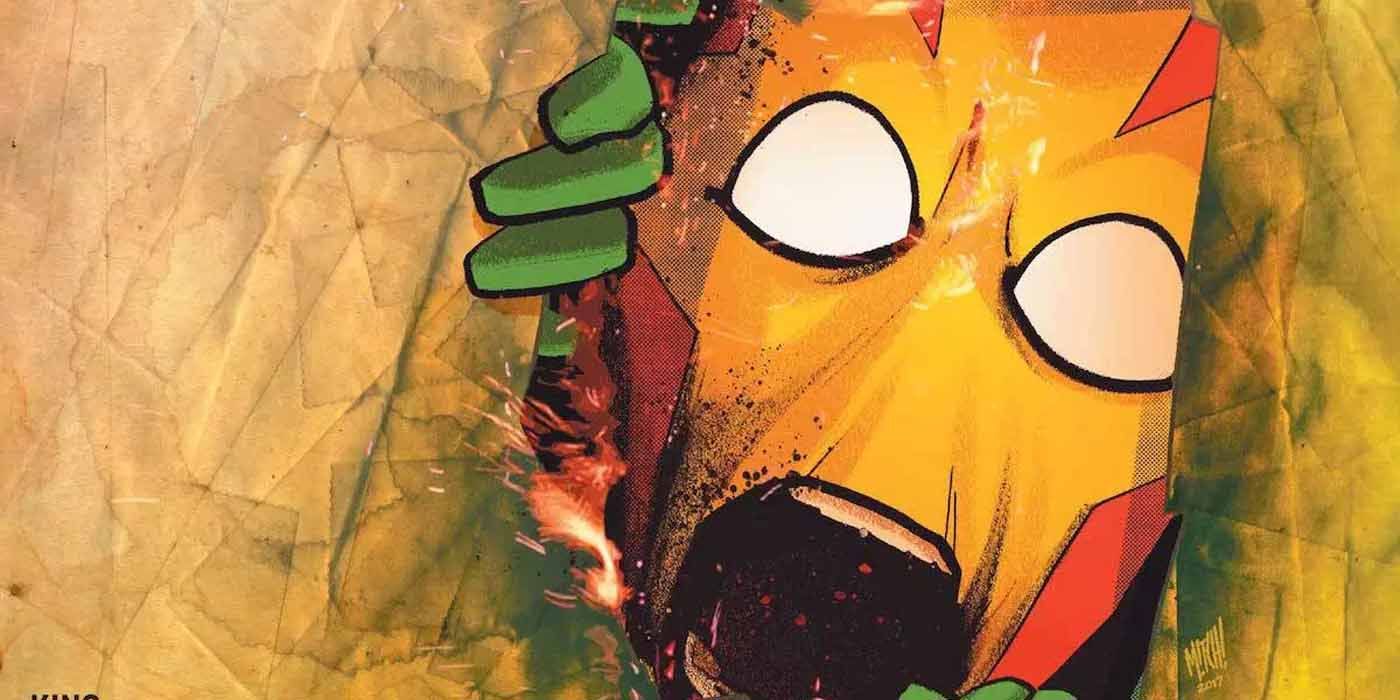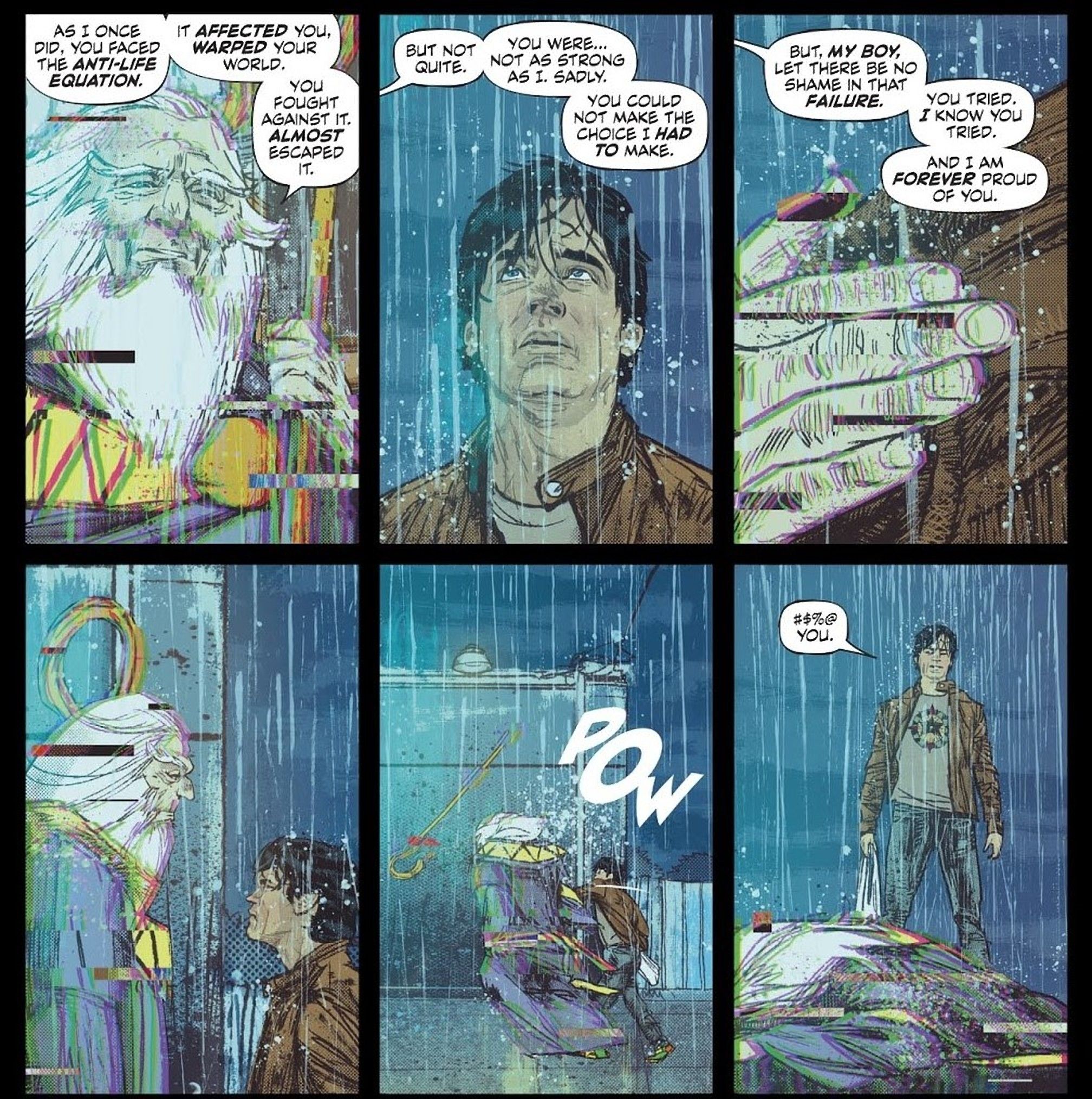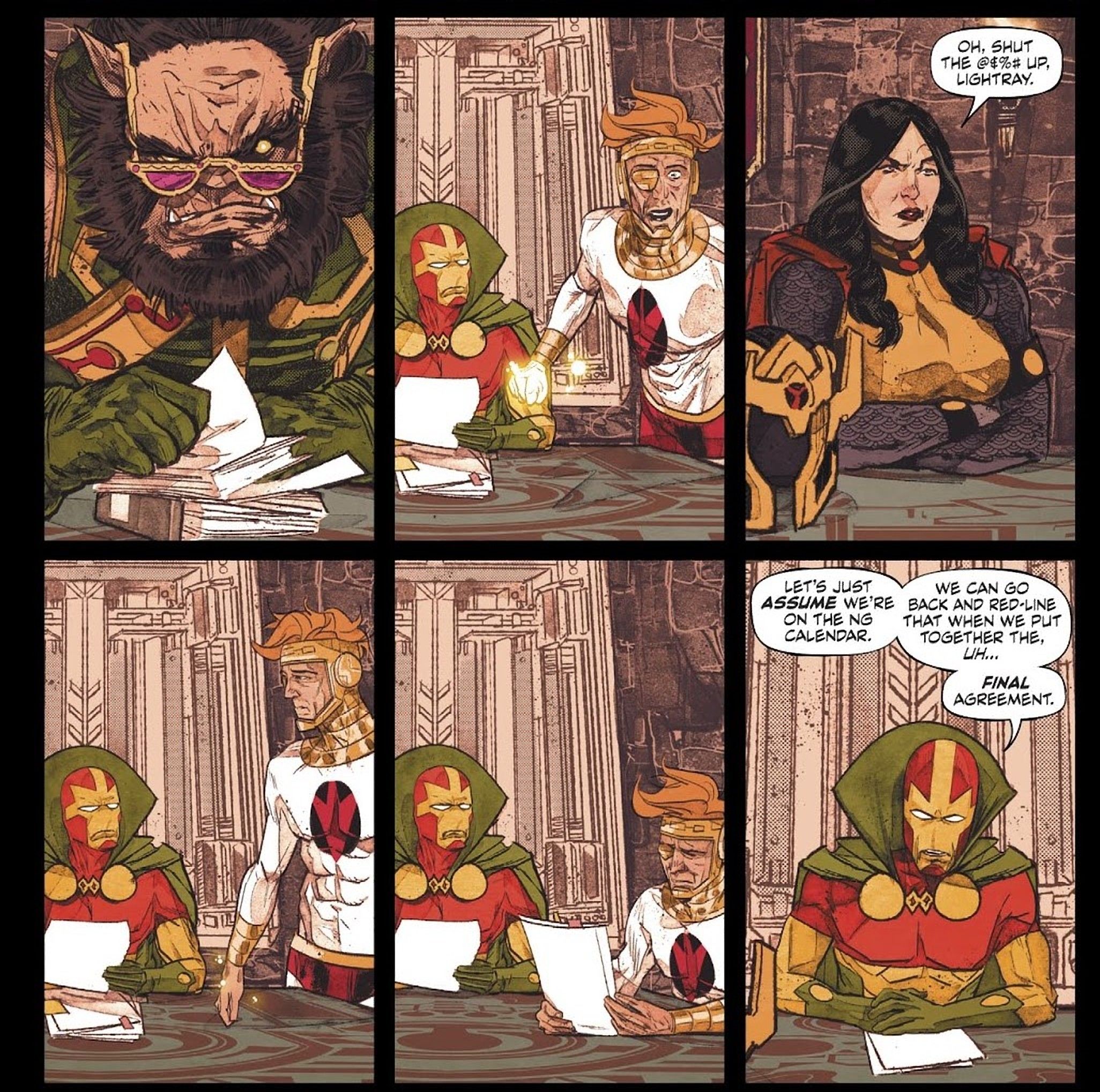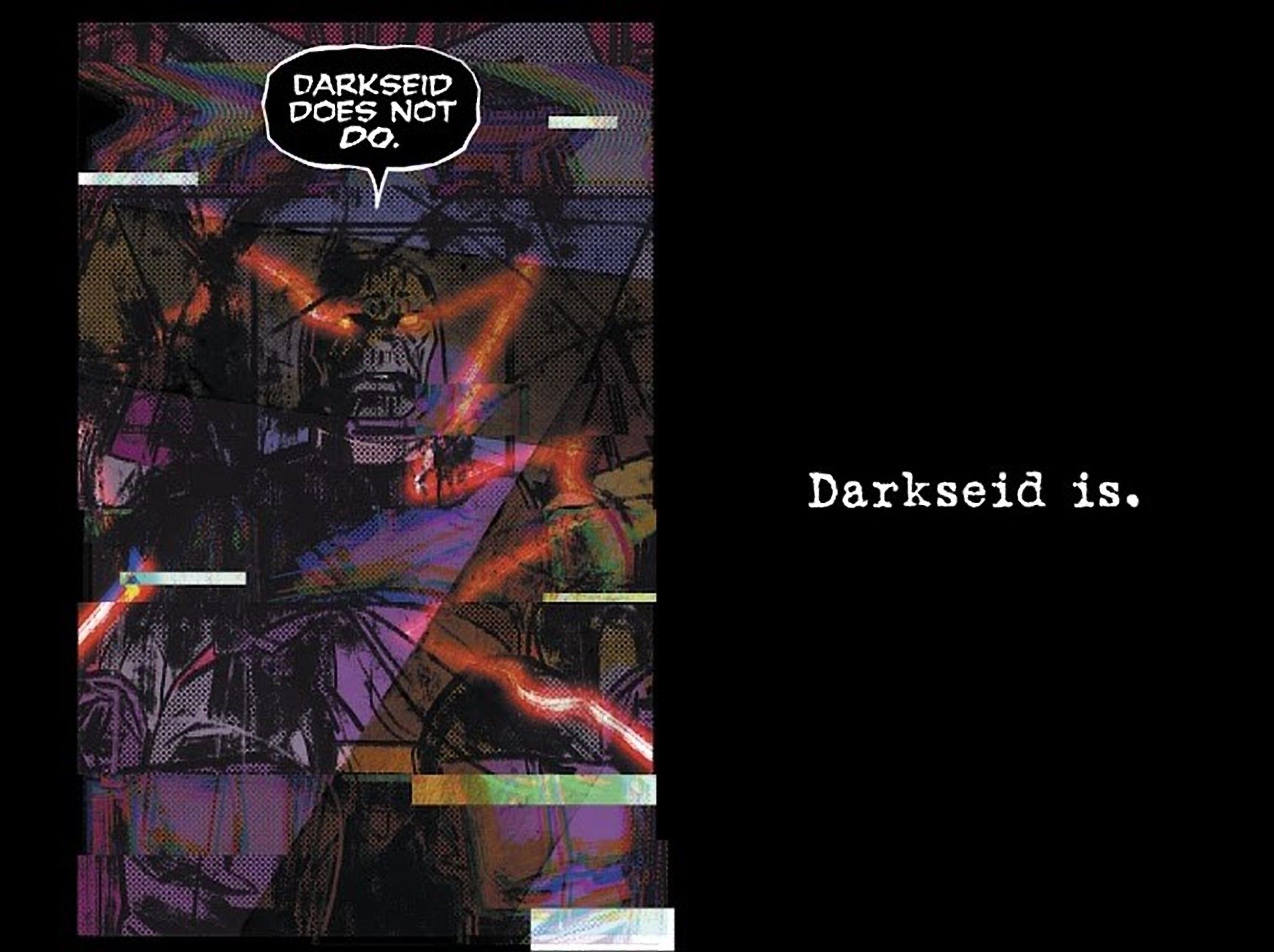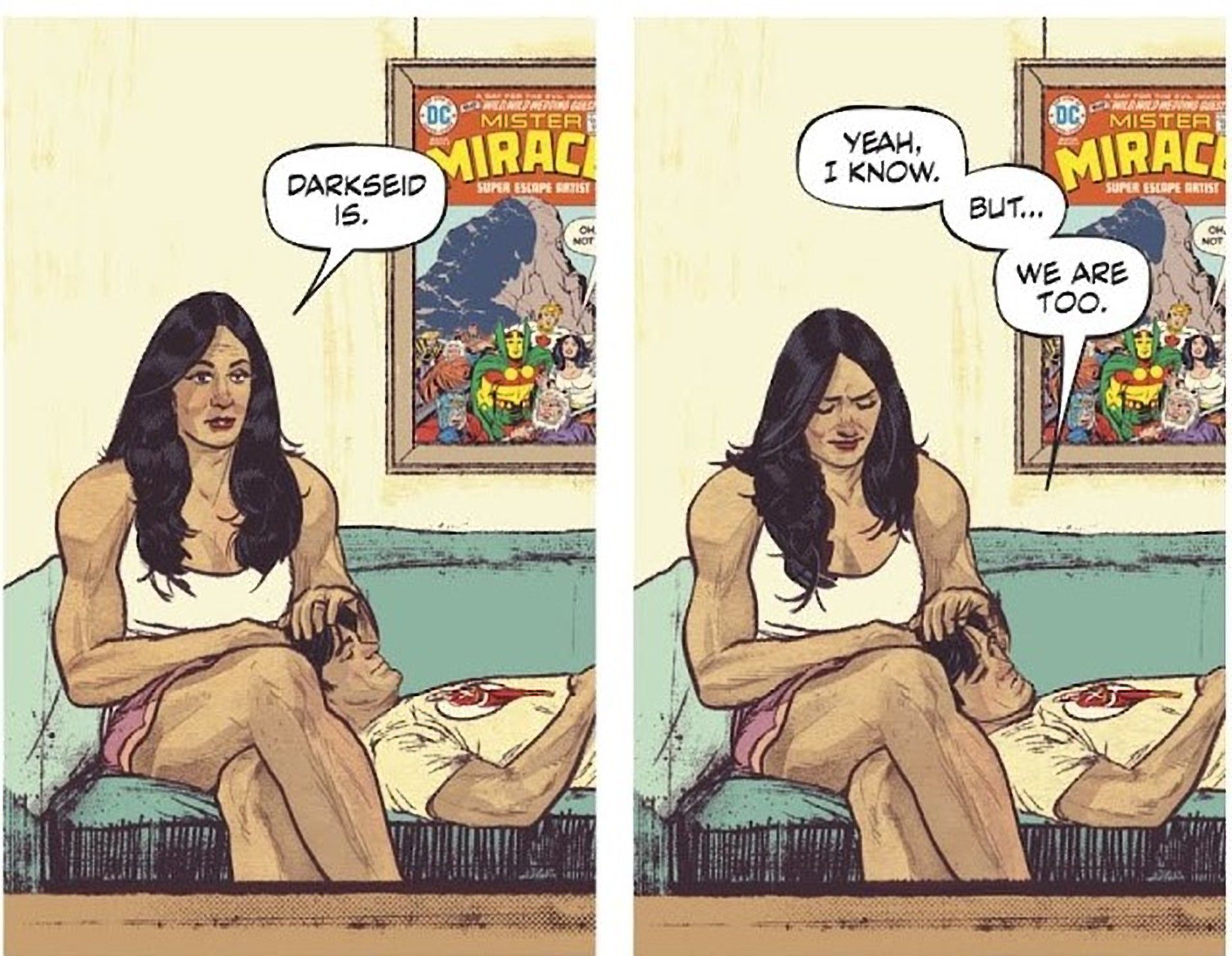Expectations were high for Mister Miracle. Coming off their critically acclaimed work on The Sheriff of Babylon, the news that Tom King and Mitch Gerads would be tackling DC's space gods of the Fourth World was met with excitement. The New Gods have been tackled by a multitude of writers and artists since they were created by Jack Kirby, but have never quite reached the metaphorical and creative highs of the original Kirby stories, though Keith Giffen & J.M Dematis, Walt Simonson, and Grant Morrison have all given it a good try.
That's part of what makes
RELATED: Mister Miracle #12 Closes the Curtain on Scott’s False Reality - For Good
Sons And Fathers
Mister Miracle reintroduces readers to Scott Free, the world's most famous escape artist, as he's bleeding out in his bathroom after an apparent suicide attempt. The depression that caused the act lingers throughout the series, shading the character's general disappointment and disconnect with the world around him. While he still loves his family, his despondence permeates his life. It doesn't matter if it's the mundanity of the regular world, or the battlefields of Apokolips; Scott Free just doesn't really care, as the traumas of the past haunt him and shade his life.
His pain is traced back to his upbringing, as established in Kirby's original series. Abandoned by the New Gods and left to rot under the control of Granny Goodness, Scott never got the chance to actually grow up with anything close to a good parent. Every act of "kindness" Granny ever afforded him came from a place of manipulation and cruelty.
But it's not just the armies of Darkseid that ruin his childhood. Even his otherwise saintly biological father, the High-Fatherm is culpable in what has become of Scott, and part of his pain. The entire story explores how someone tries to deal with trauma in all its forms and from all sources, and recognizing how it can linger. Even if you build a new body, a new family, or a new life, those scars may still be there. Even the Gods can ruin their family.
RELATED: Is Mister Miracle DC’s Final Pre-Flashpoint Story – Or Something Else?
Personified on an intergalactic scale, but with all the specific pains and emotions of a petty family, Mister Miracle manages to feel exciting, tense, funny, depressing, romantic, inspiring and real in a way that few superhero comics ever reach. Even if they're space Gods, sometimes they're insufferable, like Lightray. Sometimes they're contradictions, like the cruel, yet maternal, feelings Granny Goodness has for Scott and Barda. It acknowledges the pains of living, but doesn't drown in the misery of it all. The strength of the character writing makes each sprawling conversation feel real, even when characters are drinking wine made from the bones of their fallen comrades and discussing wars across the cosmos. It grounds the grandiose epic in real emotion.
NEXT PAGE: King & Gerads' Mister Miracle Is the Perfect Melding of Words and Art
The quality of Tom King's writing is a big reason why the book works so well, but isn't the sole one. Artist Mitch Gerads not only meets his typically impressive standard of quality and skill throughout the series, he exceeds it. Gerads manages to draw the action of the battle sequences with the same level of attention that he brings to smaller character moments. By working with the nine-panel grid made famous by Dave Gibbons' Watchmen layouts, Gerads brings hilarious, heartbreaking and harrowing little moments to the forefront. The layout of the comic gives Gerads room to really bring out the movements, whether big or small, that bring the title's characters to life.
The reality altering aspects of the series give Gerads plenty of room to experiment throughout the book, with his command over the coloring of the story being particularly noteworthy. As reality shifts and bends, Gerads stylizes everything with a visually striking shift in focus that hints at the impact of the world on the heroes. The level of craft throughout the series in both the writing and artwork makes it one of the best comics of the 21st century, let alone 2018.
RELATED: Mister Miracle: Suddenly, Everything Makes Sense - Or Does It?
Darkseid Is
Perhaps the most powerful part of Mister Miracle was the presence of Darkseid - or rather, the lack thereof. Darkseid is spoken of throughout the series, and rarely actually seen within the context of the story itself before the climatic events of Mister Miracle #11. He's just this massive force of darkness that haunts the heroes and villains and the universe as a whole. His decrees, and the scars of his choices, still resonate in all the unfortunate people who have felt his influence. He is the darkness in all things, and is present no matter what happens. Even when he's dead, his presence remains in the people who survived him.
RELATED: Mister Miracle Team Drew Inspiration from Their Marriages for Scott/Barda Dynamic
All the pain and scars and horrors brought on by that darkness is real, and sometimes it never goes away. It's a recognition of the world around us, and the horrors life can permanently inflict on us.
But Mister Miracle is also about overcoming those flaws, and making sure we don't repeat them. It's about finding out your dad was a jerk, and deciding to not be like him. It's about finding what makes the world a better place for you and the ones you love, and doing everything you can to protect it. The darkness of the world will always be there, but so will the light. Darkseid is... but so are we. And that's the kind of beautiful message Jack Kirby created the New Gods to explore in the first place.

